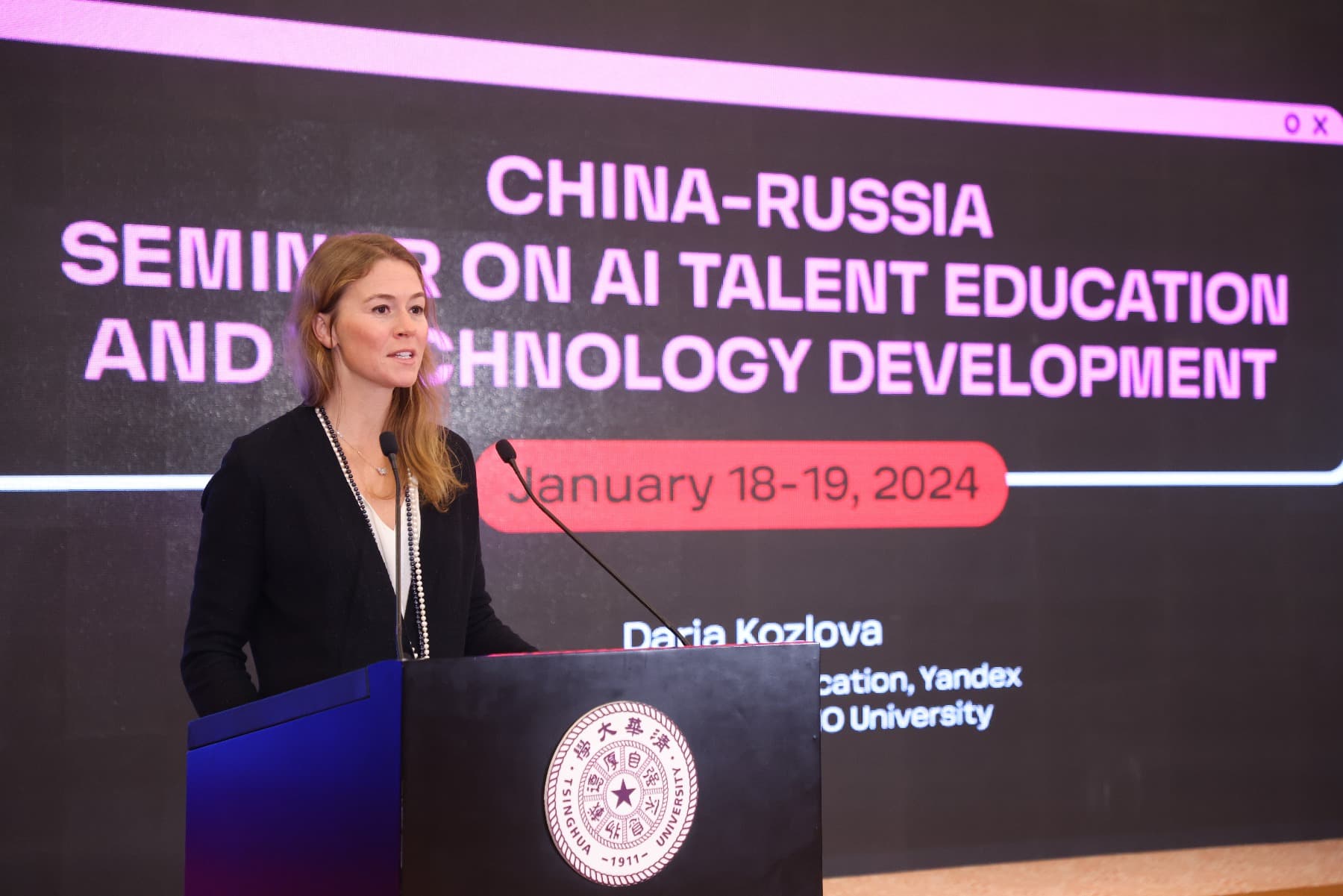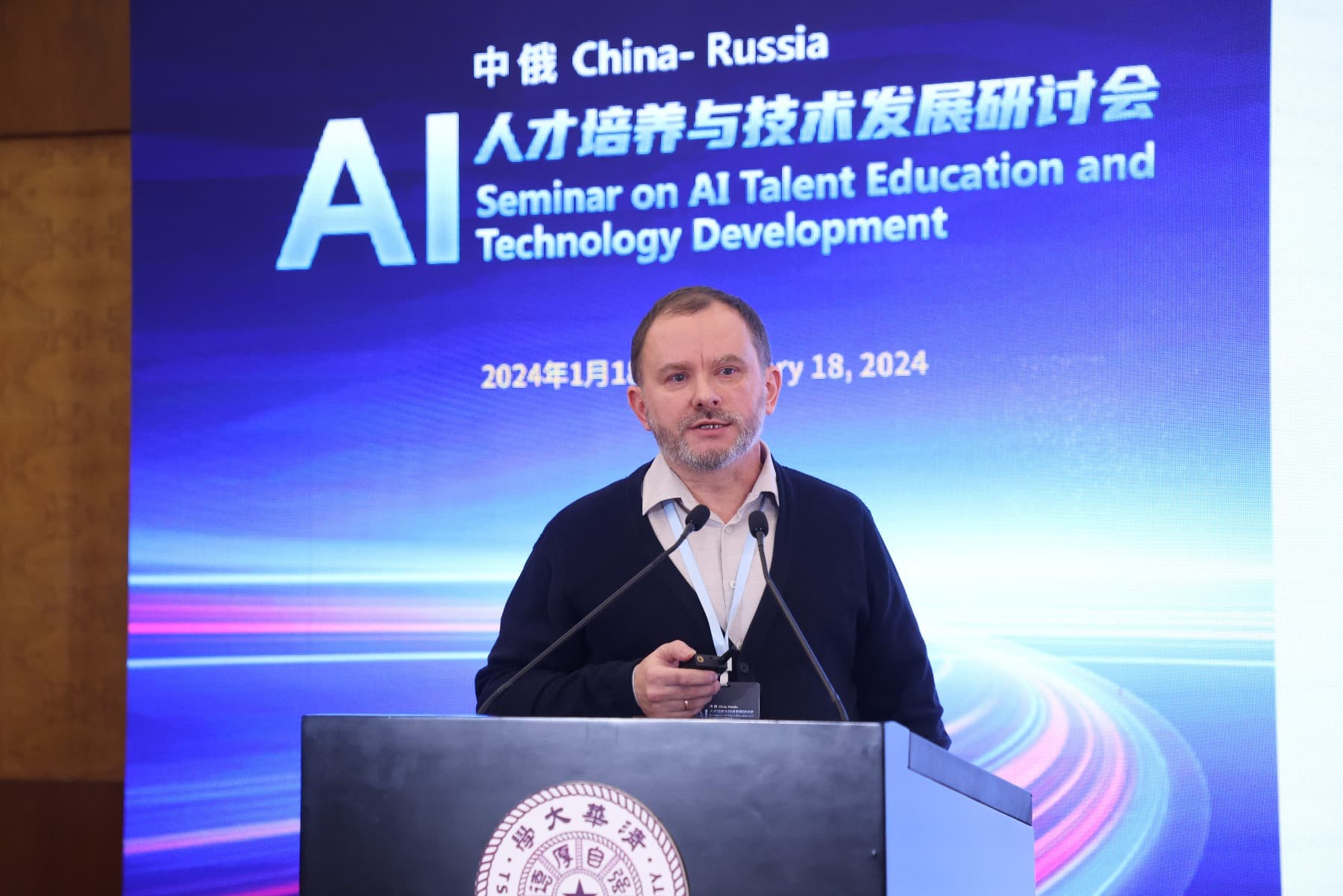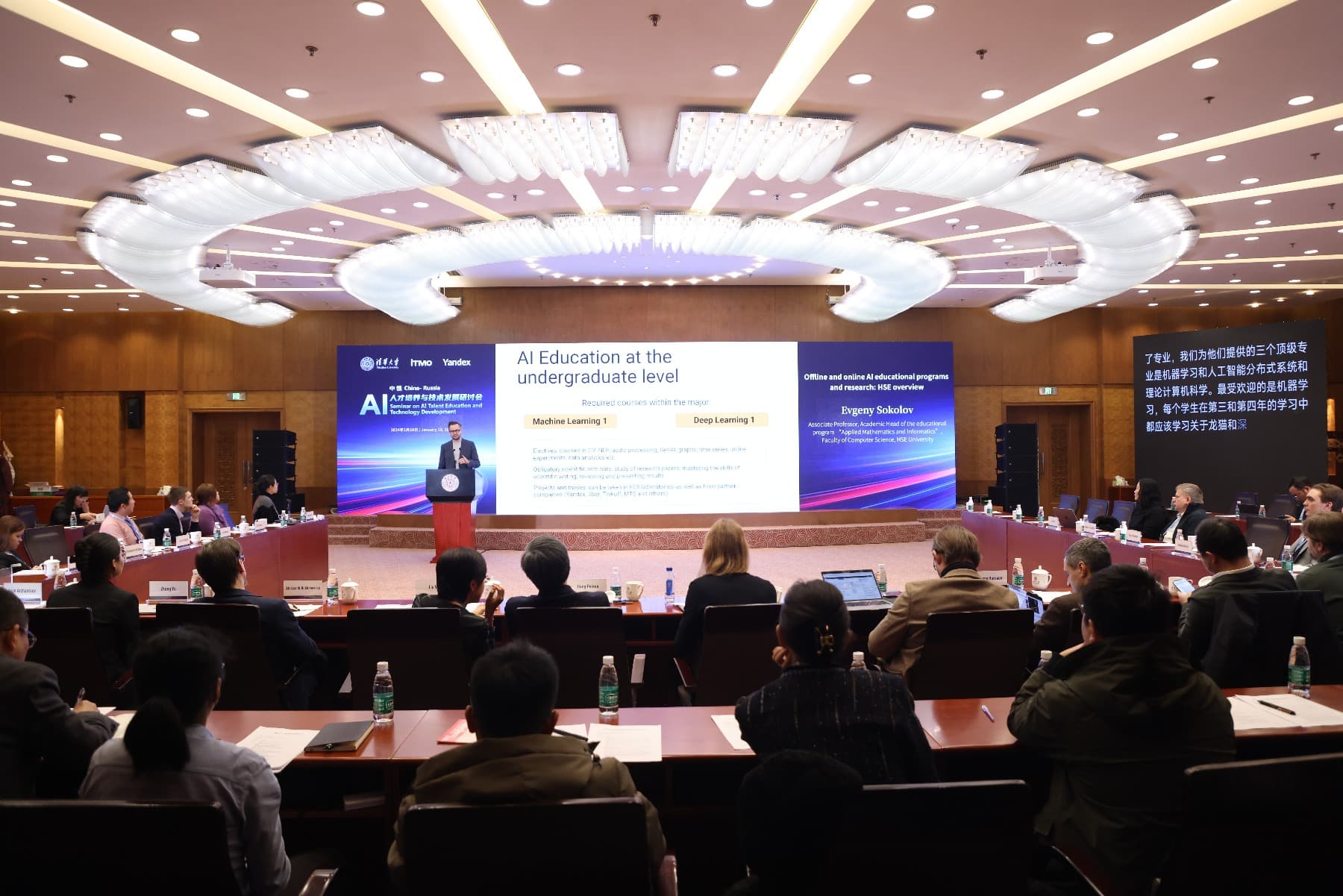HSE Faculty of Computer Science and Yandex Discuss Cooperation with Chinese University
Dean of HSE University’s Faculty of Computer Science Ivan Arzhantsev, head of the faculty’s Big Data and Information Retrieval School Evgeny Sokolov, and junior researcher at the faculty Gleb Bazhenov took part in the China–Russia Seminar on AI Talent Education and Technology Development in Beijing (PRC). The meeting organised by Yandex was aimed at discussing cooperation between leading Russian universities and China’s Tsinghua University. The university is among the world’s best, ranking first in Asia and 12th in the world in the international Times Higher Education rating.
The seminar was attended by the Vice President of Tsinghua University, Academician of the Chinese Academy of Sciences Jiang Peixue, and Director of Education at Yandex Daria Kozlova. Representatives of HSE University, ITMO, and Skoltech made reports. Employees of Yandex, Sber, and Gazpromneft also took part in the seminar.

Daria Kozlova spoke about the need for active cooperation in the fields of information security, robotics, and artificial intelligence. As machine learning, generative AI, neural networks, and large language models evolve rapidly, dialogue with foreign partners and joint assessment of the use of these technologies is critical. No university in the world can solve the problem of training talent in the sphere of AI on its own. This requires collaboration between industry, universities, and the international scientific community.
HSE University representatives spoke about bachelor’s, master’s, postgraduate, and continuing professional education programmes related to AI and the areas of research in this field. For example, they presented research that is being carried out by the Faculty of Computer Science and Yandex within the framework of their joint research laboratory.

‘We were touched by the warm welcome and high-quality organisation of the seminar, as well as the speakers’ professionalism on both sides. I would especially like to note the high level of engineering component development—in particular, such areas as robotics and the internet of things—among our Chinese colleagues. Online education is actively growing here, as are methods for testing students using artificial intelligence technologies; this was also discussed a lot at the seminar. The meeting with the leaders of the famous online platform XuetangX, which was created at Tsinghua University in 2013 and currently has 128 million users, was very useful and informative,’ said Ivan Arzhantsev.

Representatives of universities and industry discussed the challenges and opportunities in education offered by the development of artificial intelligence technologies, and cooperation between universities and enterprises. The seminar highlighted the need to conduct in-depth exchanges and discussions on the impact of generative AI technologies on education. The participants agreed that the seminar would improve mutual understanding between China and Russia in the field of artificial intelligence, promote the integration of relevant educational and research resources, and strengthen future-oriented pragmatic cooperation.
At the end of their trip, the Russian delegation visited the National Engineering Research Centre for Big Data Systems Software, XuetangX Online, and other departments of Tsinghua University.
See also:
HSE and Yandex to Expand Collaboration in Training AI Specialists
Over the next ten years, the partnership between Yandex and the HSE Faculty of Computer Science (FCS) will broaden across three key areas: launching new educational programmes, advancing AI research, and exploring the application of generative neural networks in the educational process. Established by HSE University and Yandex a decade ago, the Faculty of Computer Science has since emerged as a frontrunner in training developers and experts in AI and machine learning, with a total of 3,385 graduates from the faculty over this period.


